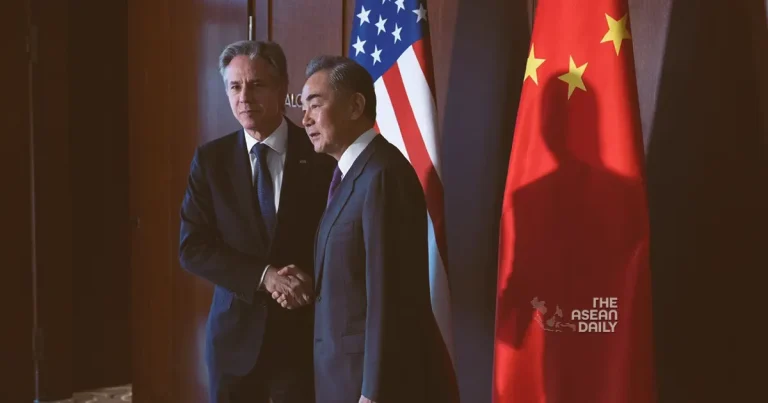24-2-2024 (WASHINGTON) The intensifying rivalry between the United States and China has left nations across Africa to the Asia-Pacific grappling with the complex task of aligning themselves strategically. This dilemma was underscored by US Secretary of State Antony Blinken during his recent address at the Munich Security Conference, where he emphasized the significance of being at the international table rather than being on the menu.
Blinken’s remarks were seen as a rallying call for solidarity among US allies, particularly European nations, in the face of an unprecedented global rivalry between the US and China. He stressed the importance of the Biden administration’s reinvestment in alliances, partnerships, and the multilateral system, framing it as a choice that aligns with the interests of nations involved.
However, these remarks drew sharp criticism from Chinese state media, characterizing them as reflective of a “zero-sum game mentality.” Chinese analyst Lu Xiang highlighted Blinken’s focus on ally solidarity, interpreting it as a warning against potential entanglements in irreparable scenarios if tensions between the US and China escalate further.
Blinken, in his Munich speech, clarified that the US was not compelling other nations to choose sides but presenting a favourable option. Josef Gregory Mahoney, a professor at Shanghai’s East China Normal University, viewed this as a caution to European countries attempting to balance relations with both the US and China. Mahoney suggested that Blinken’s message was also directed at those considering avoiding taking sides or contemplating alignment with Beijing.
Alfred Wu, an associate professor at the Lee Kuan Yew School of Public Policy, observed that the moderate tone of Blinken’s message indicated a reluctance to target China negatively. He also noted the timing, suggesting that it served as a campaign statement during a period of uncertainty in the upcoming presidential election.
European powers, notably Germany and France, have shown an increased interest in engaging with China in recent months. German Chancellor Olaf Scholz visited Beijing, marking the first such visit from a G7 leader since the start of the pandemic. French President Emmanuel Macron also emphasized Europe’s need to reduce dependency on the US during his visit to China.
While Blinken’s warning echoed globally, China’s state-owned media vehemently criticized his remarks. Xinhua and Global Times both expressed discontent, with the latter characterizing Blinken’s words as adhering to a “jungle law” where power dynamics dictate actions.




